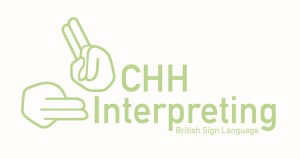 I am amazed at those that can communicate through lip reading. I have had a go at it myself, e.g. when out in a club and trying to lip read my friends as to what they are trying to say to me – not hard considering it’s usually either “Do you want another drink?” and “Let’s dance!” As long as I catch the word “drink” or “dance” then it’s not rocket science to know what they are trying to say. I have also tried lip reading by turning off the sound on my TV and trying to lip read what is being said – for me, this is nearly impossible! Every day I meet deaf people that rely on lip reading to communicate. My concern is that this is then taken for granted as the main communication method the deaf person prefers to use. I remember one deaf person telling me that it is awkward when one hearing person introduces her by saying “This is ‘X’ she’s deaf but can lip read really well!” Lady ‘X’ says that although she can lip read she wished people wouldn’t rely on this. Why? Because lip reading is hard work! The deaf health charity – Sign Health, states that it is a myth that deaf people can understand 100% of a conversation through lip reading (http://www.signhealth.org.uk/national-lipreading-awareness-week/) What’s more, they state that “Lip reading requires a huge amount of concentration and perfect environmental conditions, and even when both of those factors are achieved, a D/deaf person can only understand 20%-60% of a conversation.” 20% to 60% of a conversation – so what happens to the rest of the 40% of the discourse? As a hearing person, whilst I may not always fully understand what a doctor has said to me at least I have received the whole message to be able to have the option of asking questions to clarify what I have heard. However, Sign Health have found from their ‘Sick of It’ report that only 3% of deaf people want to communicate with their doctor via lip reading, but 40% are forced to (http://www.signhealth.org.uk/national-lipreading-awareness-week/). Don’t get me wrong, I expect there are deaf people who are happy to communicate via lip reading, that is their choice! But as my previous blog says about “Choices https://chhinterpreting.com/2015/02/22/choices/” and as Sign Health states – the best thing is to ask how the deaf person wants to communicate and to not make assumptions about their communication needs. Every deaf person is, of course, different and therefore we can expect people who are deaf to have differing communication needs. What’s more, whilst a person who is deaf may be able to lip read one person this does not necessarily mean they will be able to with another person. So many factors such as accent, facial hair all have a part to play in the ease/difficulty of lip reading. As the Scottish Sensory Centre at Edinburgh University have stated – “There is naturally individual variation in the ability to lipread, and as with any skill, competence varies, with level of hearing loss not necessarily predicting ability.” (http://www.ssc.education.ed.ac.uk/courses/deaf/ddec05f.html)
I am amazed at those that can communicate through lip reading. I have had a go at it myself, e.g. when out in a club and trying to lip read my friends as to what they are trying to say to me – not hard considering it’s usually either “Do you want another drink?” and “Let’s dance!” As long as I catch the word “drink” or “dance” then it’s not rocket science to know what they are trying to say. I have also tried lip reading by turning off the sound on my TV and trying to lip read what is being said – for me, this is nearly impossible! Every day I meet deaf people that rely on lip reading to communicate. My concern is that this is then taken for granted as the main communication method the deaf person prefers to use. I remember one deaf person telling me that it is awkward when one hearing person introduces her by saying “This is ‘X’ she’s deaf but can lip read really well!” Lady ‘X’ says that although she can lip read she wished people wouldn’t rely on this. Why? Because lip reading is hard work! The deaf health charity – Sign Health, states that it is a myth that deaf people can understand 100% of a conversation through lip reading (http://www.signhealth.org.uk/national-lipreading-awareness-week/) What’s more, they state that “Lip reading requires a huge amount of concentration and perfect environmental conditions, and even when both of those factors are achieved, a D/deaf person can only understand 20%-60% of a conversation.” 20% to 60% of a conversation – so what happens to the rest of the 40% of the discourse? As a hearing person, whilst I may not always fully understand what a doctor has said to me at least I have received the whole message to be able to have the option of asking questions to clarify what I have heard. However, Sign Health have found from their ‘Sick of It’ report that only 3% of deaf people want to communicate with their doctor via lip reading, but 40% are forced to (http://www.signhealth.org.uk/national-lipreading-awareness-week/). Don’t get me wrong, I expect there are deaf people who are happy to communicate via lip reading, that is their choice! But as my previous blog says about “Choices https://chhinterpreting.com/2015/02/22/choices/” and as Sign Health states – the best thing is to ask how the deaf person wants to communicate and to not make assumptions about their communication needs. Every deaf person is, of course, different and therefore we can expect people who are deaf to have differing communication needs. What’s more, whilst a person who is deaf may be able to lip read one person this does not necessarily mean they will be able to with another person. So many factors such as accent, facial hair all have a part to play in the ease/difficulty of lip reading. As the Scottish Sensory Centre at Edinburgh University have stated – “There is naturally individual variation in the ability to lipread, and as with any skill, competence varies, with level of hearing loss not necessarily predicting ability.” (http://www.ssc.education.ed.ac.uk/courses/deaf/ddec05f.html)
So many words look the same on the mouth from what is actually being said. We know that this is true just by the amount of videos out there at the moment which are dubbed for comedy value – take a look at this- https://www.youtube.com/watch?v=QjGk_jU6t5A. Whilst this video does have comedy value, it also has a serious undertone about how ambiguous lip reading can be. Whilst there may be some situations where lip reading can be used to ‘get by’ and get the gist of what is being said, I do believe there are other situations such as a GP and hospital appointments where getting by, i.e. receiving 20% -60% of the message isn’t good enough and could have devastating consequences.
Picture sourced from: https://www.flickr.com/photos/fauxpress/ Jan McLaughlin

Totally agree! I rely fully on lipreading and I’m profoundly deaf and it’s such a struggle! I always get tired from lipreading over a long period of time!
LikeLiked by 1 person